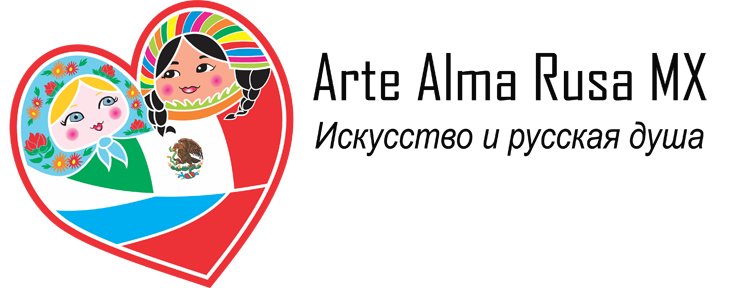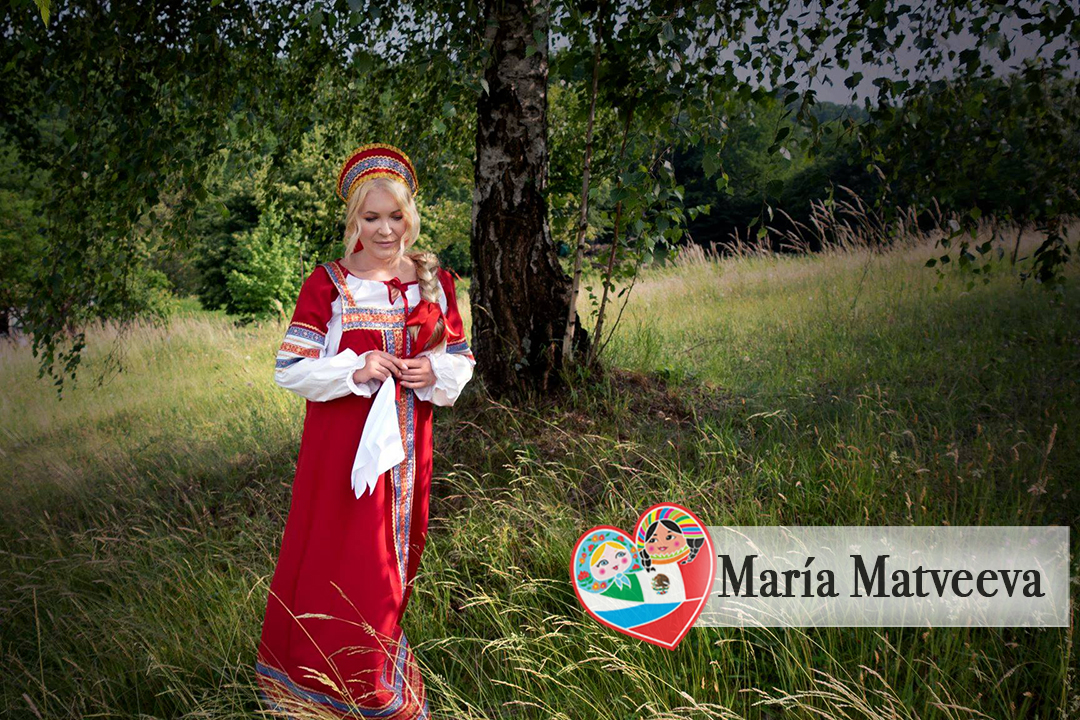
María Matveeva and her Siberian sound vision
The multifaceted voice of an Omsk soprano, that has led the ‘Siberian Stories’ (‘Siberian Tales’), to different continents, today add one more chapter to this sound anthology.
‘Vision’, fourth song of the project ‘Siberian Tales’, by Maria Matveeva and composer Eric Mouquet, from the French project "Deep Forest", it is limited to this period of internal and external change that our world faces, Matveeva tells us from Treviso, Italy, where most of the lockdown happened during 2020.
Although the video clip for ‘Vision’ was written to be recorded in Russia, Maria I take advantage the pandemic to adapt the concept to the situation we face. "I hope that people enjoy it, it has been a very prolific period creatively ".
‘Siberian Tales’, Maria talks, it is an autobiographical project, "Because each song is connected to a site in Siberia where I was, and something important happened in my life ". It was like this with one of the cities in northern Siberia, Khanty-Mansisk, where there are still many shamanic tribes, and who defined the first song in collaboration with the French project "Deep Forest".
"With‘ Siberian Tales ’I have the opportunity to share the experiences I have had with the people I've met throughout my life ".
"The voice of my grandmother defined my path"
Contrary to many stories, Maria Matveeva did not follow their parents' career path in science or academia. "I started to study music at 5 years, Played the piano, I used to like that very much. My grandmother Mary, Astronomy teacher, had a great voice and was always singing, So that I decided to follow the path of music ".
Mary commanded, to their 15 years, a selection of her recordings at a Jazz Academy in New York and she was invited to enroll, but mother did not allow it, and recommended that you look for an option in your city, Omsk, Siberia. "I entered the Shebalin College of Music, very good level, but the line of study is classical singing. There I discovered my lyrical voice, I was surprised because I sang a lot in my house, different genres like Soul, but i never got close to classic. I continued on this path, they invited me to Moscow, and I understood that, if I wanted to do a career, I had to go to the big city ".
So it was. In Moscow, Maria met an important Opera Master, and invited her to an international Masterclass. "Suddenly, I was already flying to Italy, where I was invited to a concert in Venice, and then I stayed to study at the Conservatory. That's why i came to italy, for the music".
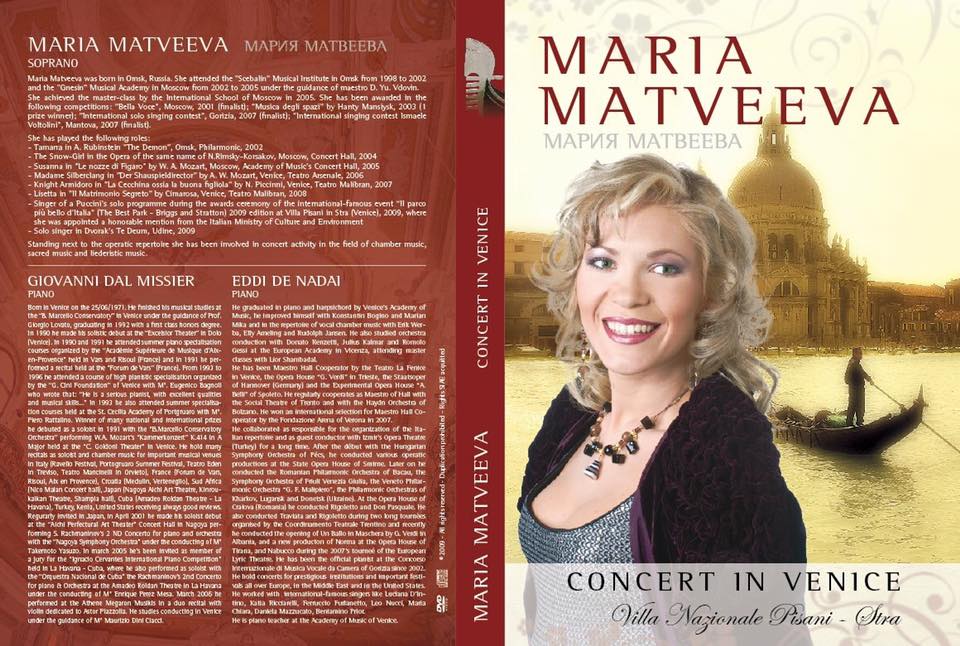
From the Opera to David Bowie
Even with a career in Italy, Maria never followed the rigid taboo in her training classical song. "It is often thought that, if you study I sing in a style, it is impossible to change to another, but for me it is very simple. I like to experiment, not only with music, but with my voice. And of course, the voice is a spiritual part that connects with our soul ".
After the death of David Bowie, Maria got in touch with Bowie's pianist, Mike Garson, and went to Los Angeles to record his version of "Life on Mars", as a tribute to the artist. "It was a transition in my musical life, from one dimension to another. During those days, I told Garson that I had always wanted to collaborate with Eric Mouquet, de ‘Deep Forest’, who fuses ethnic music with electronic sounds. Garson referred to David Bowie, his constant search in art, all the facets it had, and I said: ‘You need to follow your dreams, what you feel in harmony with yourself ".
‘Deep Forest’ and shamanic poetry
“Eric Mouquet and I met in France in 2016 because I decided to write to him. It tells him about Siberia, especially, over one of the cities in the north, Khanty-Mansisk, where the khanty tribe live. They are nomads, they live in the tundra, they raise reindeer, they still have this traditional lifestyle and mysticism that I admired since my childhood ". Especially, Eric's conversation and interest focused on his history with María Voldina, a lyrical shaman and poet from this region.
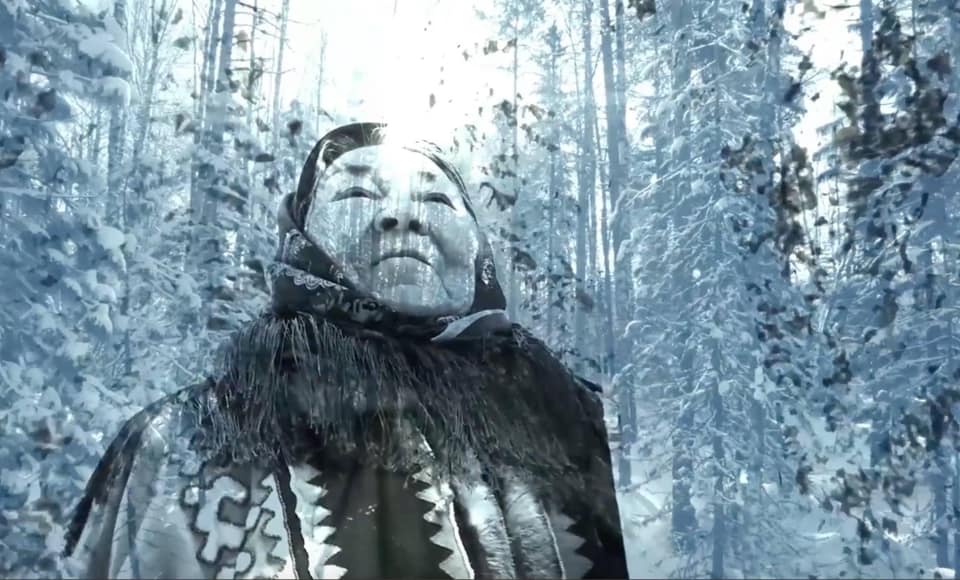
Maria Voldina is a public person and has appeared on television several times. "The first time I heard it was with a beautiful shamanic melody, I was so attracted to his person, his voice, I wanted to meet her. One day we were going to coincide to sing at a concert in Siberia, but something happened and it didn't, I got very sad. Shortly, I needed to go to Moscow to a festival. When i took the flight, I went to my seat, and the man next to me wanted to change his place to go with his companion, And who took his place was none other than María Voldina! We were companions for 4 hours, we talk about the life of shamans, about Siberian music and many other things.
María Voldina would become the protagonist of the song 'Two' ('Two'), song based on the poem her husband dedicated to her to celebrate their love and on the harmonies of local folk songs. The first song of ‘Siberian Tales’ was a remote work between Italy, Russia and France. Eric wrote the music, I the letter, and then we record in his studio. Incredible energy was felt, all the time we experience, I didn't know what would happen next ".
Altai, Slavic tradition and mythology
Eric Mouquet and María Matveeva saw great potential in the nascent project, but nevertheless, It was a journey through the legends of Siberia what who defined the next steps.
"One of the most visited regions is the Altai Mountains. People from all over the world will look for something. If you see a map, and you locate the region of Tibet, Altai is very close. There was a very mystical Russian painter, Nikolái Roerich, who organized a great expedition, and it is said he went to Altai to seek the entrance to Shambala, a divine kingdom ". In Altai it seems that time does not pass, people still believe in spirits, and communicates with nature. I think that in Mexico they also have places like this ".
But nevertheless, the second song addresses another Altai legend, which Maria found out from an Italian archaeologist, friend of hers. ‘The princess of Ukok’ is a very interesting legend, I would have liked to film the clip in Altai, but that area is highly protected and permits and a high budget are needed. So we look for a similar site in Italy, Emperatore field, famous for filming in Italian cinema ".
‘Kalinushka’ (‘Kalinushka’) came next, a dialogue between the vicissitudes of the past and the present, inspired by an old traditional song that her great-grandmother Anastasia used to sing to Mary. Finally 'On the edge' was released ('On the border of the worlds'), which brings together elements of Slavic mythology, and deals with the cycles of life and the world. “For the video clip of‘ On the edge ’, I went to my hometown, Omsk, and it was the first fully recorded video in Siberia. This video won an award in the Russian World Music Awards 2020.
From Siberia to the world
Maria Matveeva was became the producer of ‘Siberian Tales’ thanks to its incessant search, and has managed to position its sound stories even in the top chart of countries Africans, as well as the shared desire to discover Siberia.
"Many people, even my family didn't understand why I did it, why did I leave operatic projects for following this, but for me it was a personal mission. When i started to work in this project I didn't think about what people would say, I needed something new in my career, to break the rules".
Working with Eric Mouquet has been a great learning for Mary, both in the musical, as in his songwriting skills, direction and production of the video clips. She describes herself as 'visionary but realistic' to the posibilities. "Every idea takes time. For now i will work 2 songs more with Eric, one with Mike Garson, and I have another project with an artist American. The visual part, cinematic, is a world in which every time I dive deeper. Maybe in the future I will be able to do something related to music and cinema".
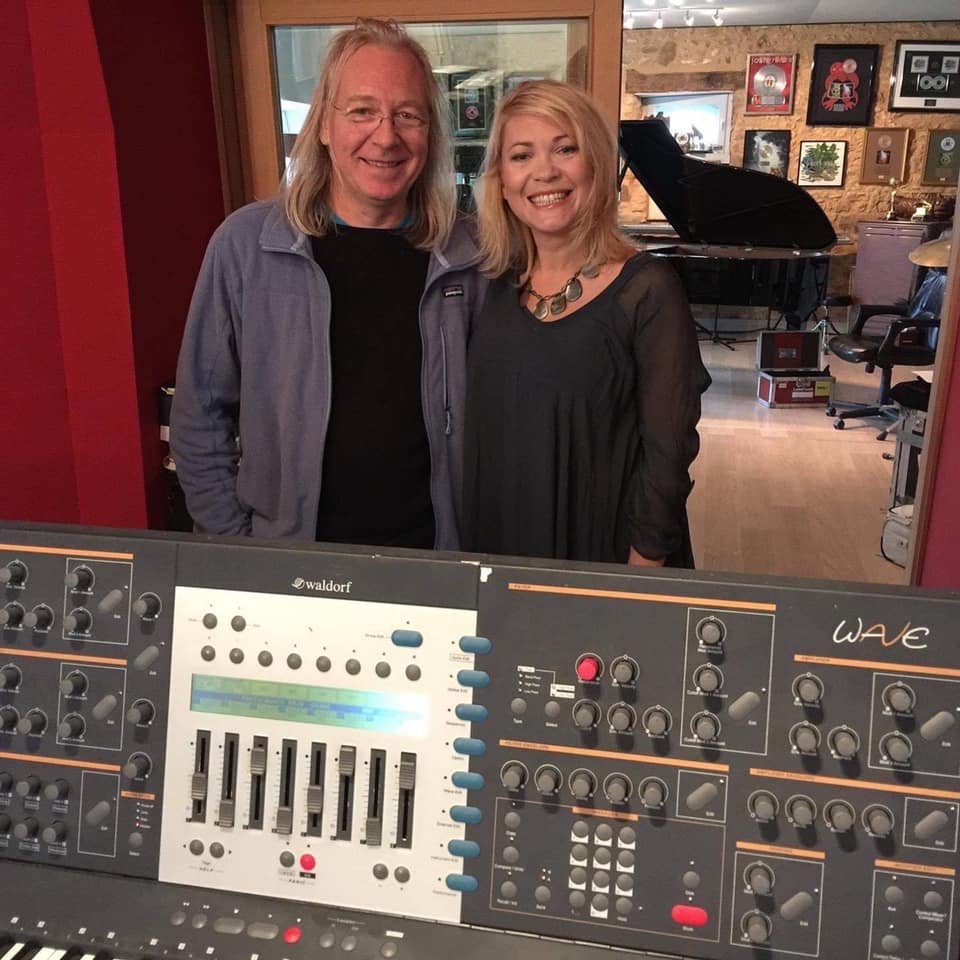
The coronavirus pandemic, and having lived the isolation so close to one of the most critical scenarios that were lived, in northern Italy, led her to deep reflection. "We have experienced changes, in our mind and our feelings. We need to accept this that we live, believe it, and send love and light to the world. It is important for me as an artist to say something through music. It is a universal language. Are vibrations. There is currently a wide musical offer, and beyond that we need to dance and have fun, it is important to create something of your own, something no one has done before. Manifest your own vision ".
